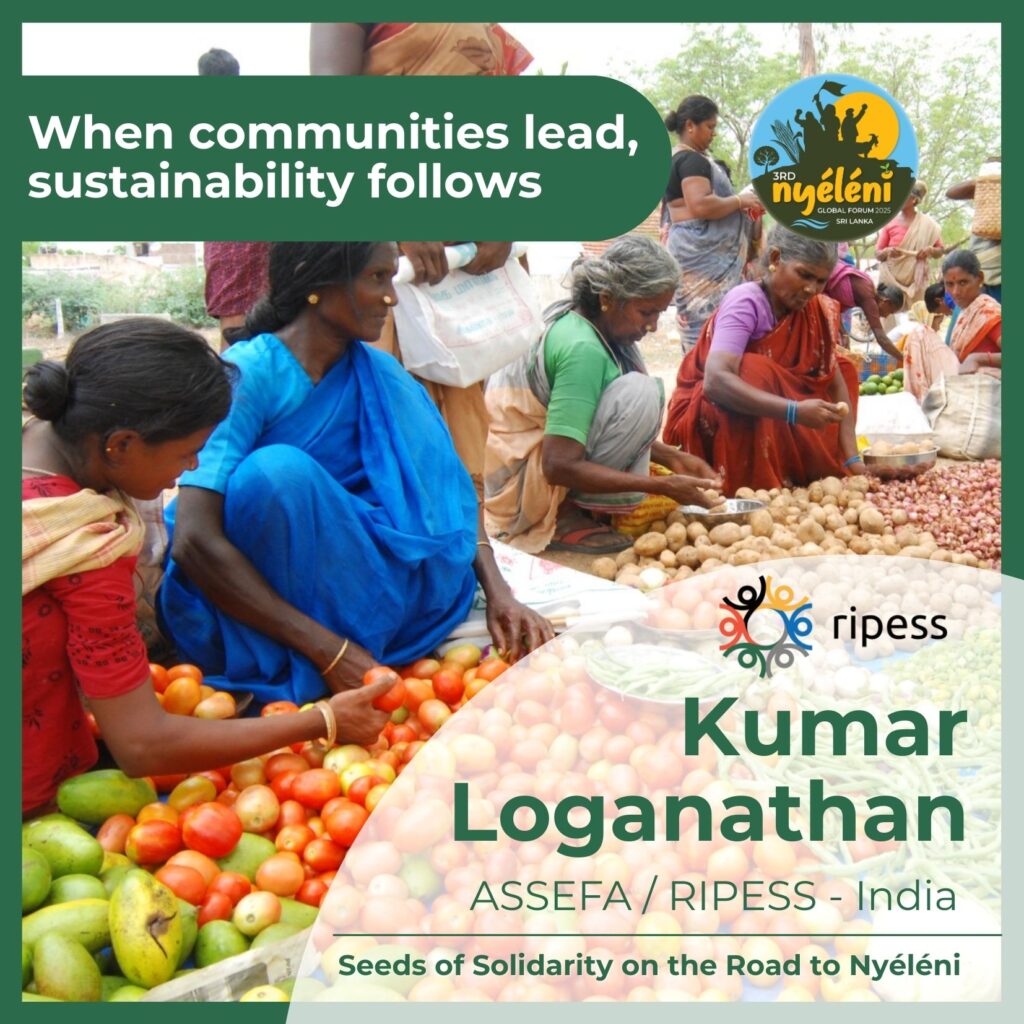
From Tamil Nadu, a diverse state in southern India, Kumar Loganathan brings us the story of a quiet yet powerful movement to reclaim control over food systems. A movement woven from the land, the water, and the hands of thousands of small-scale farmers and women producers, led by the Association for Sarva Seva Farms (ASSEFA) in collaboration with farmers’ groups and women’s collectives.
Tamil Nadu is a region with a wide variety of agro-climatic zones, but marked by a harsh reality: more than 85% of its farmers own small plots; traditional agriculture of millets, pulses, rice, and vegetables has given way to monocultures of sugarcane, maize, and hybrid rice; native seeds are being lost; water is scarce and increasingly dependent on erratic rainfall; and fragmented landholdings weaken bargaining power against intermediaries.
ASSEFA is rooted in the Bhoodan (Land Gift) Movement, initiated in the 1950s by Acharya Vinoba Bhave, a close associate of Mahatma Gandhi, who walked across India asking landowners to donate land to landless families. That journey resulted in the collection of 4.3 million acres. In 1968, ASSEFA was born to bridge the gap between land distribution and sustainable settlement, supporting families to cultivate and thrive.
Today, that legacy has evolved into a broader mission of food sovereignty, grounded in the Social and Solidarity Economy (SSE). Its work is woven through four interconnected strategies:
- Revitalizing water: rehabilitating traditional tanks and ponds, building farm ponds, and strengthening collective water governance to ensure sustainable irrigation for smallholder farmers.
- Restoring seed sovereignty: promoting traditional varieties of millets and pulses, strengthening seed exchange networks, and passing on indigenous knowledge for climate-resilient, low-cost agriculture.
- Farmer-led markets: promoting weekly markets, food outlets managed by producers, and direct farm-to-consumer channels, so that value stays within the community and food remains fresh and local.
- Social security for women in the dairy sector: forming women’s milk producer groups, facilitating credit to purchase livestock, ensuring marketing through farmer-owned dairy factories, and guaranteeing social pensions for long-term contributors.
These actions, democratically managed by farmers’ societies, federations of women’s groups, and nonprofit social enterprises, are not just agricultural projects—they represent a holistic model of food sovereignty based on the principles of SSE, solidarity, collectivism, and social and environmental justice.
Kumar arrives at the Nyéléni Forum with two key contributions in his suitcase: the lessons learned from decades of community work and a proposal to scale and strengthen these practices, sharing Tamil Nadu’s experience with other territories.


